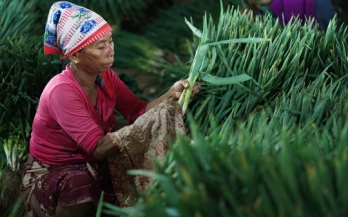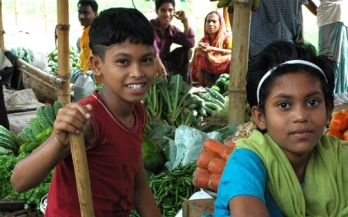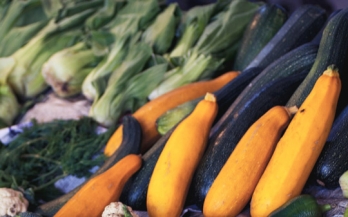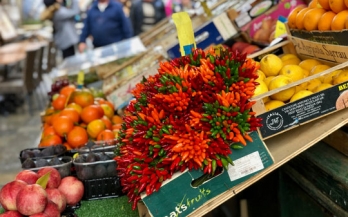


GAIN and Incofin Investment Management announce new collaboration to unlock the potential of SMEs to improve diets and nutrition in Africa
GAIN and Incofin Investment Management have announced a new collaboration to take forward the newly established Nutritious Food Financing Facility (N3F) that will equip African SMEs with financing and skills to make nutritious food more available and affordable.
Food Systems Dashboard: How it will work
Washington DC, United States
Our food systems are bankrupting our health systems, accelerating climate change and using natural resources in an unsustainable way. Most people agree they need to be transformed to change this. But how? Food systems are complex and offer many entry points for change.
The Japan Nutrition for Growth Summit (N4G) - National actions on food, health and prosperity for all
Davos, Switzerland
This session will look at practical proposals to advance the 9 food and nutrition commitment areas set out in the N4G Food system commitment framework and ask in particular, how business and other stakeholders can help governments better deliver solutions faster.
Executive short course - Together for Nutrition
- Geneva, Switzerland
The Global Alliance for Improved Nutrition (GAIN) organises the second edition of the executive short course, Together for Nutrition, which focuses on public-private engagement to improve the consumption of nutritious and safe food.
EAT Stockholm Food Forum 2020
- Stockholm, Sweden
Food systems are our number one opportunity for improving climate, human health, biodiversity and equity. With 2030 identified as both a point of no return in climate change, and the deadline to meet all 17 Sustainable Development Goals, the next ten years will determine our future.
The best reads of 2019 from GAIN staff
At GAIN we strive for sustained impact. Our aim is to improve the consumption of nutritious and safe food for all, especially the most vulnerable. We work hard to make sure our programming, policy and knowledge work form a virtuous circle that generates that impact. Hence, we take knowledge seriously: as producers, but also as consumers. Here is our end-of-year list for the articles, books, blogs, videos and reports that have influenced our thinking this year.
GAIN Discussion Paper Series 2 - Policies and financing to spur appropriate private-sector engagement in food systems
- 27/11/2019
There is increasing evidence that improved agrobiodiversity (that is, the diversity of crop and livestock genetic resources – domesticated or wild – which contributes to agriculture and food production) can enhance human nutrition through several pathways.
Making Markets Work to improve the consumption of nutritious and safe food
- 14/11/2019
Making Markets Work (MMW) is a joint programme between GAIN and six leading development agencies which aims to catalyse the power of markets and the private sector to make nutritious and safe foods more available, affordable and desirable. The programme charts new models, approaches and concepts to guide governments, investors and business to equip and shape markets to tackle malnutrition.
GAIN Convening Paper Series 5 - Disruptive technology innovation for nutrition
- 12/11/2019
Malnutrition is a major problem across many parts of the world, leading to poorer outcomes in infants and children and health problems throughout life, which reduce economic growth and quality of life. Many of the causes of malnutrition have to do with diets, and diets are shaped by the food system.